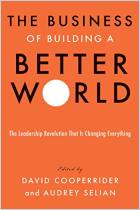Acesse a sua conta getAbstract para obter o resumo!

Acesse a sua conta getAbstract para obter o resumo!
Colin Mayer
Capitalism and Crises
How to Fix Them
Oxford UP, 2024
Sobre o que é?
The aim of companies should be to solve problems — not just to make profits.
Recommendation
Companies play a massive role in society, and it’s well-accepted that they operate purely for profit. But professor Colin Mayer’s central premise is that corporate profits should come from solving problems, not creating them. The implication is that businesses should address those actions that produce negative externalities and consider positive social contributions in their investment or allocation decisions. Mayer’s concepts are thought-provoking and inspiring, but could the business world ever move from financial self-interest to agree on altruistic and diverse goals? Whatever the answer, Mayer’s book shows that there is definitely a place for more purposeful thinking within companies.
Summary
About the Author
Colin Mayer is an emeritus professor of management at the University of Oxford. His books include Prosperity: Better Business Makes the Greater Good.
















Comment on this summary